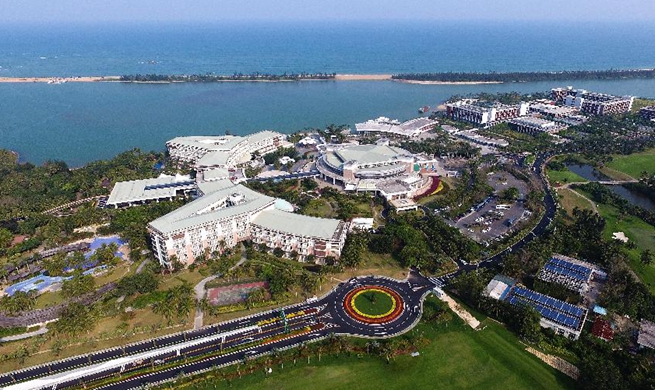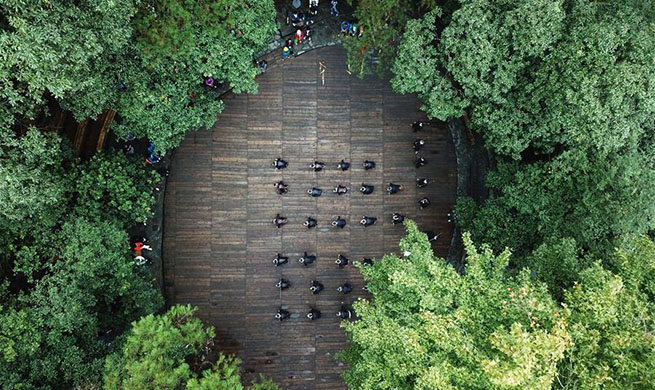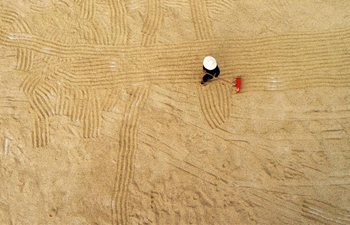by Peerzada Arshad Hamid
NEW DELHI, Oct. 17 (Xinhua) -- The situation in southern Indian state of Kerala Wednesday remained tense as authorities struggled to ensure free passage of women toward the Sabarimala temple as per directions of country's Supreme Court amid rising protests, officials said.
Police detained several protesters and dispersed others who tried to prevent women from moving toward the temple perched high on hills.
The devotees supporting the ban are opposing the entry of girls and women of menstrual age (10-50 years) into the hill shrine.
Police used force to disperse the protesters by removing their makeshift shelters, thereby triggering tension at Nilakkal, the main gateway to Sabarimala.
Nilakkal which is around 20 km from the shrine acts as a base camp.
The protesters are opposing the India's Supreme Court order permitting women of all age groups to enter the shrine.
Authorities have deployed huge police force to ensure implementation of the apex court's order. Local media reports said 1,000 police personnel, including 200 women constables, were on the spot to ensure safe passage of women and prevent violence.
"Every devotee will be allowed safe passage as we are fully prepared to tackle the situation," a senior police official said.
However, reports said two women - one from Kerala and another from Andhra Pradesh, who were among the first women to begin their trek to the Sabarimala temple on its opening day - were forced to turn back. One of them was turned away by protesters, while as the other returned out of fear, reports said.
Officials said the doors of Sabarimala temple will be opened to women on Wednesday at 5:00 p.m. local time.
On Tuesday, protesters including men and women resorted to violence, stopping vehicles and evicting young women they believed were heading for the hill shrine. The protesters backing the ban frisked buses and women were pushed, manhandled and violently turned away from the base camp at Nilakkal.
The restrictions on women entering the Sabarimala shrine reflected an archaic belief that menstruating women are "impure" and the deity Ayyappa is celibate.
Many take a vow of celibacy for 41 days before embarking on a trek through the mountains to the temple.
However, last month India's Supreme Court, while striking down the age old ban, said Lord Ayyappa "was not a separate denomination."
"Religion cannot be the cover to deny women right to worship," the court in its order said.
The hilltop shrine remains open only for 127 days in a year and can only be accessed through a difficult forest terrain.
Kerala Chief Minister Pinarayi Vijayan said his government will not give in to attempts to prevent women from entering the temple and police will help uphold the Supreme Court order. He also said the government will not request a review of the order as "there should be no discrimination on the basis of gender."
There had been a series of protests against the apex court's order. However, it took a political turn when Bhartiya Janta Party (BJP) and Congress party demanded a review of the court order.
The National Ayyappa Devotees Association and the Nair Service Society have filed review petitions in the top court.
The temple will be closed on Oct. 22 after the five-day monthly prayer during the Malayalam month of Thulam.












